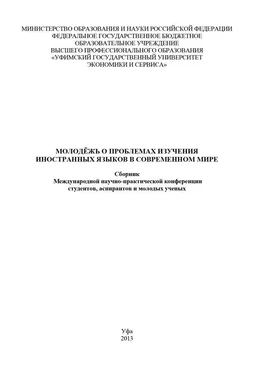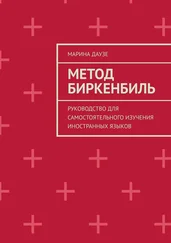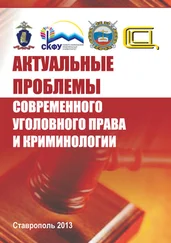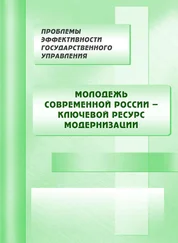Коллектив авторов - Молодежь о проблемах изучения иностранных языков в современном мире
Здесь есть возможность читать онлайн «Коллектив авторов - Молодежь о проблемах изучения иностранных языков в современном мире» — ознакомительный отрывок электронной книги совершенно бесплатно, а после прочтения отрывка купить полную версию. В некоторых случаях можно слушать аудио, скачать через торрент в формате fb2 и присутствует краткое содержание. Город: Уфа, Год выпуска: 2013, ISBN: 2013, Издательство: Литагент БИБКОМ, Жанр: Прочая научная литература, foreign_language, на русском языке. Описание произведения, (предисловие) а так же отзывы посетителей доступны на портале библиотеки ЛибКат.
- Название:Молодежь о проблемах изучения иностранных языков в современном мире
- Автор:
- Издательство:Литагент БИБКОМ
- Жанр:
- Год:2013
- Город:Уфа
- ISBN:978-5-88469-630-3
- Рейтинг книги:3 / 5. Голосов: 1
-
Избранное:Добавить в избранное
- Отзывы:
-
Ваша оценка:
- 60
- 1
- 2
- 3
- 4
- 5
Молодежь о проблемах изучения иностранных языков в современном мире: краткое содержание, описание и аннотация
Предлагаем к чтению аннотацию, описание, краткое содержание или предисловие (зависит от того, что написал сам автор книги «Молодежь о проблемах изучения иностранных языков в современном мире»). Если вы не нашли необходимую информацию о книге — напишите в комментариях, мы постараемся отыскать её.
Молодежь о проблемах изучения иностранных языков в современном мире — читать онлайн ознакомительный отрывок
Ниже представлен текст книги, разбитый по страницам. Система сохранения места последней прочитанной страницы, позволяет с удобством читать онлайн бесплатно книгу «Молодежь о проблемах изучения иностранных языков в современном мире», без необходимости каждый раз заново искать на чём Вы остановились. Поставьте закладку, и сможете в любой момент перейти на страницу, на которой закончили чтение.
Интервал:
Закладка:
3. http://www.lifescript.com/soul/self/growth/intercultural_communication_su rviving_in_a_global_world.aspx
THE ROLE OF THE ENGLISH LANGUAGE IN INTERCULTURAL DIALOGUE
УДК 81’24
DMITRIEVA D.
Bashkir State University (Ufa)
The English language has become widely spread now. It is one of the world's most important languages. it is an international language, the language of progressive science and engineering. We may say that English now is number one in the world, second only to Chinese.
Great Britain, the USA, Canada, Australia and New Zealand are regarded as English-speaking countries. Though the customs, traditions and the ways of life in these countries are quite different, they have owed common language – English it is the language of their ancestors who once left their homeland and sailed across the oceans in search of a new life and happy future.
Those who like foreign languages as well as teaching may enter the Linguistic University and become a teacher of one or two foreign languages – English, German, French, Spanish or Italian. Some graduates may work as teachers at schools or Institutes, others – as interpreters, translations, publishers, public relations agents.
A more general aim to learn foreign languages is to make our intellectual and cultural horizons wider through reading foreign authors in the original and through contacts with people of another culture. Languages study is an important key to understanding other peoples’ cultures.
As any other languages, English is a manifestation of culture. With the help of the English language one can acquire cultural background information and increase the knowledge about English-speaking countries and the people who live there, about their customs and traditions.
A foreign language is absolutely necessary for those who work in any branch of science. If you want to know much about the world’s famous scientific research information, you need command of a foreign language. And first of all you need English, because it is the language of most scientific books and magazines.
Nowadays English is becoming the language for practical usage. It is spoken in business. English is widely spoken at international conferences and also by those who travel in Europe, Asia, Africa and even in South America.
Nowadays, above 350 million people speak English as their native language. About the same number use it as a second language. English is spoken by no less than 50 per cent people on the Earth.
As for me I am absolutely sure that every educated and cultural person should know at least one or two foreign languages. There are many reasons for people to learn foreign languages. One of the main reasons is the need to communicate orally or in writing with other people who use this language. You may communicate with them over the Internet or mail if they are far away. When you listen to tapes, radio, watch videos and read a book or newspaper in a foreign language, it also means that you communicate. It is because you understand not only the words but thoughts and ideas of other people and you are ready to express your own thoughts in reply.
LEXICAL CORRESPONDENCES
УДК 81’373.46-021.161=111
DOLZHENKO K.
Ufa State University of Economics and Service (Ufa)
The study of the language is arguably the most hotly contested property in the academic realm. That is why linguistics compares languages and explores their histories, in order to find and to account for its development and origins to give the answers to this or that language point. Due to the semantic features of language the meanings of words, their ability to combine with other words, their usage, the “place” they hold in the lexical system of a language do not concur for the most part. All the same “ideas” expressed by words coincide in most cases, though the means of expression differ [1]. Lexical correspondences are such words and phraseological units in the target language which can be used instead of definite words and phraseological units in the source language. The term “lexical correspondence” should be differentiated from the term “lexical correlation” (correlated words). Speaking about lexical correspondence we mean words in one, target language. Lexical correspondences are usually fixed in dictionaries, that’s why thy may be also called dictionary correspondences. The principal types of lexical correspondences between two languages are as follows:
1) Complete correspondences;
2) Partial correspondences;
3) The absence of correspondences.
Complete correspondencesof lexical units of two languages can rarely be found. As a rule they belong to the following lexical groups.
1. Proper names and geographical denominations;
2. Scientific and technical terms / with the exception of terminological polysemy/;
3. The months and days of the week, numerals.
While translating the lexical units partial correspondencesmostly occur. That happens when a word in the language of the original conforms to several equivalents in the language it is translated into. The reasons of these facts are the following.
1. Most words in a language are polysemantic, and the system of word – meaning in one language does not concur with the same system in another language completely.
2. The specification of synonymous order which pertain the selection of words.
3. Each word effects the meaning of the object it designates.
4. The differences of semantic content of the equivalent words in two languages.
5. Each language has its own typical rules of combinability.
6. Most difficulties are encountered when translating the so called pseudo – international words i.e. words which are similar in form in both languages, but differ in meaning or use.
The Absence of correspondences,or realie words are denoting objects, phenomena and so on, which are typical of a people. In order to render correctly the designation of objects referred to in the original and image associated with them it is necessary to know the tenor of life epoch and specific features of the country depicted in the original work.
The following groups of words can be regarded as having no equivalents:
realiae of everyday life – words denoting objects, phenomena etc., which typical of a people;
proper names and geographical denominations;
addresses and greetings;
the titles of journals, magazines and newspapers;
weights, linear measures etc.
When dealing with realiae it is necessary to take special account of the pragmatic aspect of the translation, because the «knowledge gained by experience» of the participants of the communicative act turns out to be different [2].
1. Curme G.O. English Grammar. – N.Y., 2003, p. 251.
2. Мухина Н.Б. Учебно-методический комплекс по курсу «Теория и практика перевода». 2011.
LANGUAGE UNIVERSALS
УДК 81’16-027.511=111
ELAEVA E.
Ufa State University of Economics and Service (Ufa)
Language is not only unique to humans and diverse but there are also common features between languages. About five thousand languages are spoken in the world today but there is a basic unity that underlies their diversities. Many of the world’s languages show similar principles. 'Language universals' are a set of principles which describe systematic patterns in languages – in other words they describe what the world's languages have in common. These language universals classify entire languages into categories which are then based on shared properties. There exist three approaches to explaining universals. These are namely the monogenesis, the innateness including other psychological explanations and the functional and pragmatic explanations. The term monogenesismeans that there is a genetic origin which holds true for all languages of the world. The hypothesis is that there once existed and ancestor language from which all the languages of the world developed. This would also implicate that each of the universals have been part of the ancestor language and that they have passed on through all the stages the language went through. Authorities who speak about innatenessare simply arguing that in the absence of any alternative coherent explanation for language universals, innateness is the only possibility that can be. Instead of serving to deepen our understanding of language universals, the absence of any possibility of testing innateness as an explanation serves rather to divert researchers from considering alternatives that may be testable [1]. The last approach is the one of the functional and pragmatic explanations. The argument concerning this approach is that through certain universals language becomes more functional. This contradicts the numerous instances where language seems to be dysfunctional. “The existence of synonyms seems to be a needless luxury and even more clearly the existence of homonyms…” [2].
Читать дальшеИнтервал:
Закладка:
Похожие книги на «Молодежь о проблемах изучения иностранных языков в современном мире»
Представляем Вашему вниманию похожие книги на «Молодежь о проблемах изучения иностранных языков в современном мире» списком для выбора. Мы отобрали схожую по названию и смыслу литературу в надежде предоставить читателям больше вариантов отыскать новые, интересные, ещё непрочитанные произведения.
Обсуждение, отзывы о книге «Молодежь о проблемах изучения иностранных языков в современном мире» и просто собственные мнения читателей. Оставьте ваши комментарии, напишите, что Вы думаете о произведении, его смысле или главных героях. Укажите что конкретно понравилось, а что нет, и почему Вы так считаете.












